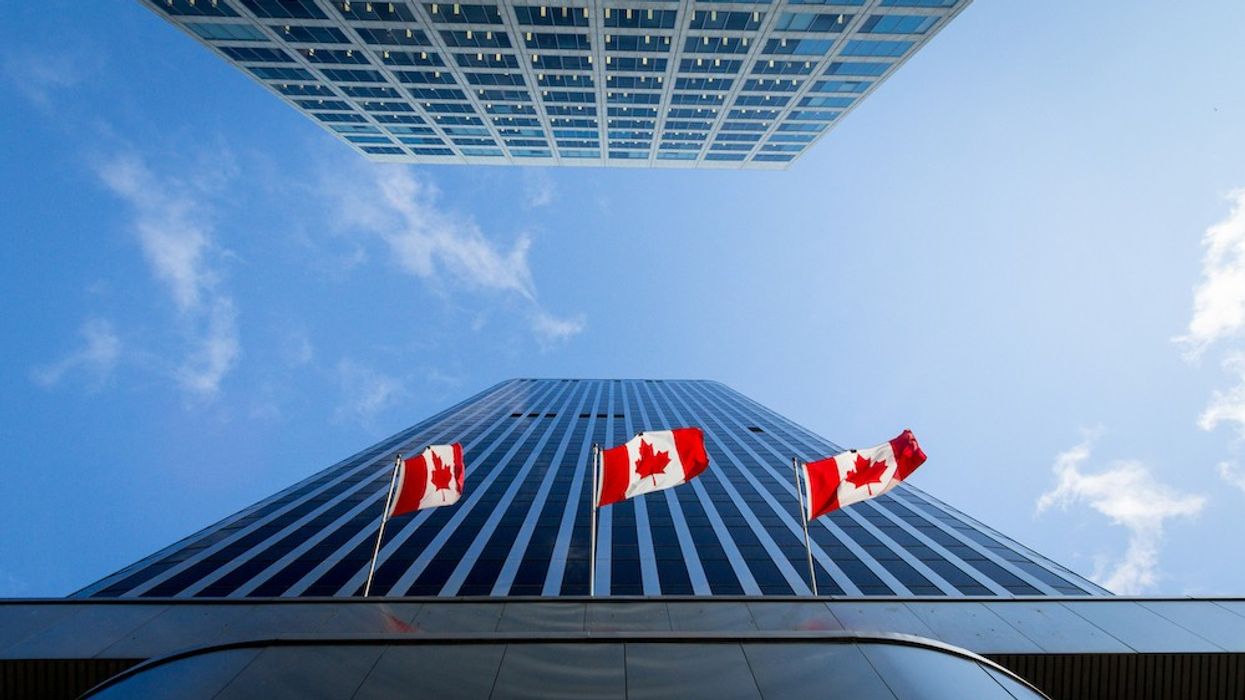This week will bring yet another Bank of Canada rate announcement -- and borrowers are waiting with baited breath to see just how much rate pain is in store.
Two disappointing inflation reads earlier this month -- a mere -0.1% decline to Canada’s CPI to 6.9%, and -0.06% in the US to 8.2% -- show that while tighter monetary policy has put a stop to out-of-control growth, the measure remains far too high for policymakers’ comfort.
That has set the stage for a minimum 50-basis-point (bps) hike to come this week, to be followed by another 75-bps whopper to finish off the year in December. That will bring Canada’s benchmark cost of borrowing to 3.75% this month and to 4.5% by year end, which will likely be its terminal point.
In a research note, Robert Kavcic, BMO’s Senior Economist and Director of Economics, says the lender’s call is actually for a larger 0.75% hike this week, due to soaring consumer prices.
“Core inflation came in stubbornly strong in September, with price growth excluding food and energy settling into the 5% annualized range across most terms between one- and 12-months. This isn’t going to sit well in Ottawa,” he writes.
“At the same time, the Bank can only fall so far behind rising Fed tightening expectations without putting even more downward pressure on the loonie, which becomes even more inflationary. So, even if housing is cracking more significantly and core inflation backs off sooner than in the US, the Bank might not have the luxury of easing off the tightening brakes when it would otherwise want to.”
Jerome Trail, mortgage broker at The Mortgage Trail, tells STOREYS that while the BoC has made some positive headway, they only have so many levers at their disposal when it comes to the economy.
“It’s my opinion the Bank of Canada is recognizing they can only impact so many things. And there are a couple of major factors out of their control; at the same time we should step back and recognize they have actually managed to curb or stop it -- they’ve not been able to bring it down, but they’ve stopped it from increasing rapidly. We’ve basically stabilized,” he says.
The Impact on the Housing Market
According to Leah Zlatkin, a LowestRates.ca expert and licensed mortgage broker, another rate hike will further slow in the nation’s housing market as higher rates continue to whittle affordability for buyers; Canada’s average home price fell by nearly 7% annually in September, the latest in a trend of monthly declines that kicked off with the BoC’s first hike in March.
“We have seen the market slow down across the country, but home prices are still not affordable for the average Canadian buyer who may still be struggling to qualify for a mortgage”, she says. “While the hikes are needed in order to tame inflation, this will undoubtedly make financing more difficult for the average buyer or homeowner.”
According to her analysis, a 50-bps hike will increase lenders’ Prime rates to 5.95%, bringing variable mortgage rate pricing to approximately 5.2% and above for a five-year term.
For today’s variable borrower holding a 4.45% rate on a $700,000 home, that will spell a $172 increase in their monthly mortgage payments, with the total rising to $3,540, compared to the $3,368 they’re paying today.
Those with Home Equity Lines of Credit (HELOCs) -- which are also prime-based products -- would see their monthly payment increase by $36 to $637, based on a balance of $100,000 and rate of 6.45%.
In addition to rising monthly payments, this week’s rate hike could also move more variable borrowers into their trigger rate zone -- the point when their monthly payments no longer cover their mortgage interest, requiring a change to the mortgage’s amortization schedule, or for the borrower to make a larger, lump sum payment, says James Laird, Co-CEO of Ratehub.ca and President of CanWise mortgage lender.
“Anyone who has held a variable-rate mortgage since the rate increases began will be fatigued by the endless oversized rate hikes,” he says.
“Anyone holding a variable-rate mortgage or balance on a home equity line of credit (HELOC) will be looking to the Bank’s language to see if there are any signs that the rate hikes are nearing an end. If the Bank of Canada continues signalling further rate increases, Canadians holding variable-rate mortgages will consider locking into fixed rates… Assuming the Bank of Canada increases by a further 50 basis points, variable rates with most lenders will be the same or higher than their respective five-year fixed rates, which is rare.”
Fixed Rates Also on the Rise
While the volatility in today’s variable space may prompt new borrowers to opt for a fixed rate instead, there isn’t much relief to be found there either; spiking bond yields -- currently the highest since 2008 at 3.73% -- have driven fixed-rate products to new highs.
According to rate comparison site RATESDOTCA, several lenders responded last week with price increases to their five-year fixed offerings.
READ: Renewing Mortgage Borrowers Could See Payments Jump by 21% Due to Rate Hikes
“Last Friday, THINK Financial raised its five-year fixed mortgage rate to 5.14% and MCAP pushed it up to 5.44%. These interest rate increases follow Scotiabank on October 12 announcing a 25-basis point increase for fixed-rate mortgages and a decrease in spread from prime for variable-rate mortgages that amounts to a 10-basis point increase. TD on the same day announced a 20-basis point increase in fixed-rate mortgages,” reads their statement.
“Lenders are responding to surging bond yields and may be pricing in an expected 75 basis point hike ahead of Wednesday,” says Victor Tran, RATESDOTCA mortgage and real estate expert. “If consumers are considering making a switch to a fixed rate, now may be the time to lock it in.”





















